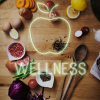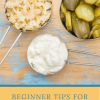 The search for safe, reliable products can be very difficult at times. We can’t always get enough information to know whether the things we buy for our families will satisfy our standards for purity and quality.
The search for safe, reliable products can be very difficult at times. We can’t always get enough information to know whether the things we buy for our families will satisfy our standards for purity and quality.
The natural response many of us have had is to produce these things ourselves, and many of us have started with fruits and vegetables. Creating home gardens and orchards to feed our families keeps us from buying products that may have been contaminated with pesticides or bacteria, and the quality is higher too.
But it doesn’t have to end there. We still have other food and fiber needs to meet, and we need to explore the possibilities of raising additional products ourselves.
If you want to become more self-sufficient and get more of your clothing and food needs at home, you may want to consider raising sheep and goats. These animals are versatile producers of milk and wool, and they are reasonably easy to raise without a big farming operation. Much of what they eat is grass, and they will grow well with lawn seed types. No need to buy special varieties.
You should always check local zoning laws regarding livestock, since many cities, towns, counties, and even states have particular restrictions about the presence of animals in certain areas. There may also be limits on how many animals you may have per acre of land. But if you clear that hurdle, start planning what your flock can give to you.
Pure, Healthful Products
As we noted earlier, there’s no better way to be sure of what you are eating than to raise it yourself. Producing your own milk and potentially cheese from goats or sheep on your own property is a great way to avoid many of the common concerns about food.
Milk produced elsewhere on a farm is handled many different times by different people. It’s hauled hundreds of miles, processed at a plant, and handled by retail staff. At any of those points, there could be a breakdown in safe handling. That’s to say nothing of the risk of a contamination with antibiotics before the milk is even taken from the cow.
Ethical Care
Of course, your high standards pertain to more than just the products. You’re also in tune with the welfare of the animal, because the animal belongs to you.
Most farmers are very good stewards of their livestock, but the issue here is not what they are doing so much as that you don’t know what they are doing. If only one farmer in 1,000 is unethical, you don’t know if that’s where your food came from or not.
By raising livestock yourself, you can be sure that the animals receive proper food, water, shelter, and medical care, and that the products are harvested humanely and safely.
Recycling
Let’s just be blunt. Milk and wool aren’t the only things your livestock will produce. They’ll generate waste, and you may be distressed at just how much of there will be.
The key is to have a good management strategy from the very beginning. Areas where they animals congregate to eat or drink will need to be properly surfaced with a material that can be easily cleared of animal waste. But the great thing about it is what you can do with that waste after you clean it up.
Livestock manure is excellent fertilizer. If you compost it properly, it will generate high temperatures that will kill weed seeds and reduce the odor, making a very rich product that will help your lawn, flowers, and vegetables reach their peak production.
Raising sheep and goats is an exciting challenge that can give you great rewards. They’ll produce milk, cheese, fiber, and even fertilizer for your family. But perhaps most important is the peace of mind you’ll get from knowing you’re providing things in a sustainable, environmentally-friendly way.



